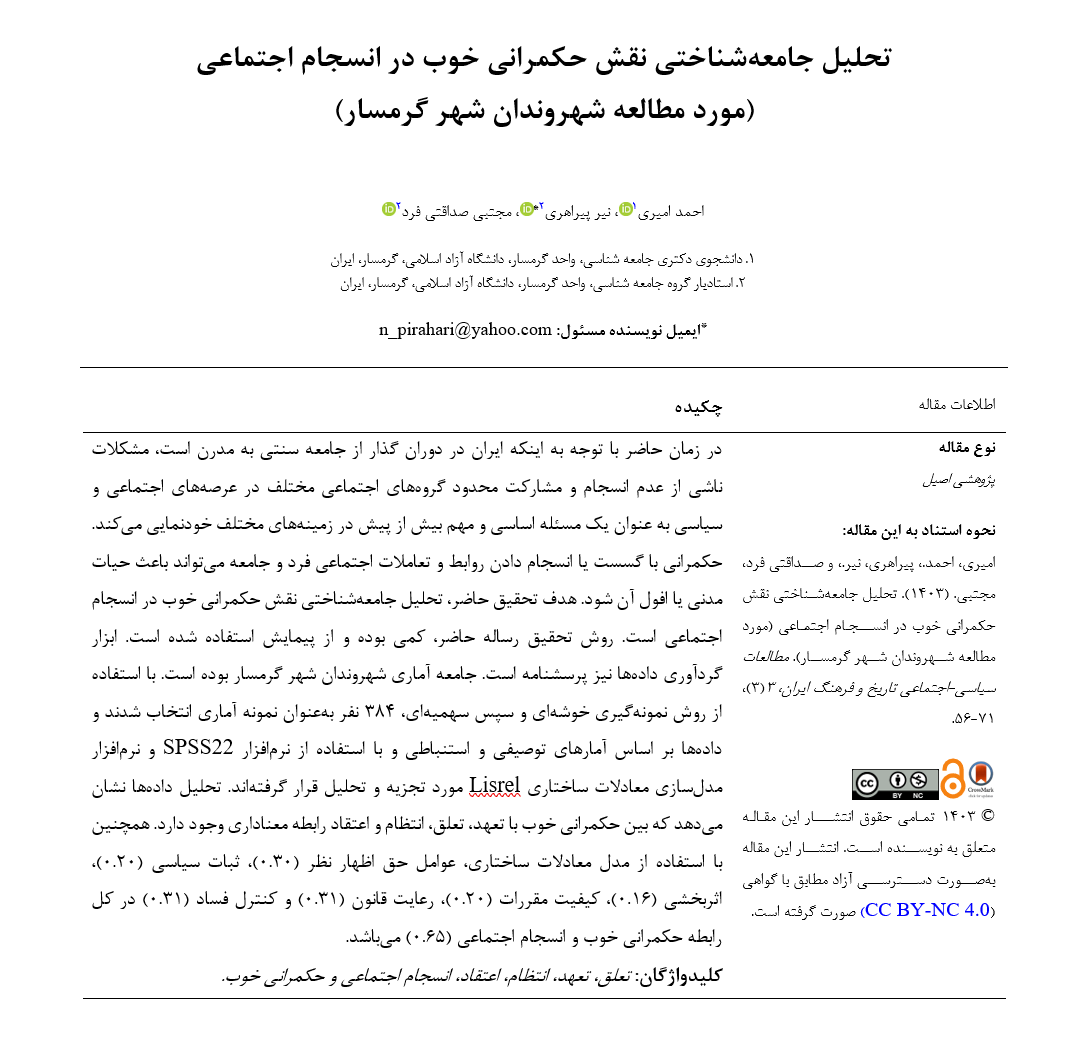A Sociological Analysis of the Role of Good Governance in Social Cohesion (Case Study: Citizens of Garmsar City)
Keywords:
Belonging, Commitment, Order, Belief, Social Cohesion, Good GovernanceAbstract
At present, given that Iran is in a transitional period from a traditional society to a modern one, the issues arising from a lack of cohesion and the limited participation of various social groups in social and political arenas are becoming increasingly evident across different fields. Governance, by either disrupting or fostering social relations and interactions between individuals and society, can either promote or diminish civil life. The aim of the present study is a sociological analysis of the role of good governance in social cohesion. The research method of this dissertation is quantitative, utilizing a survey. The data collection tool was a questionnaire. The statistical population consisted of the citizens of Garmsar city. Using a cluster sampling method followed by quota sampling, 384 individuals were selected as the statistical sample. The data were analyzed based on descriptive and inferential statistics using SPSS22 software and structural equation modeling software Lisrel. The data analysis indicates that there is a significant relationship between good governance and commitment, belonging, order, and belief. Additionally, using structural equation modeling, the factors of the right to voice (0.30), political stability (0.20), effectiveness (0.16), regulatory quality (0.20), rule of law (0.31), and control of corruption (0.31) altogether explain the relationship between good governance and social cohesion (0.65).
Downloads







